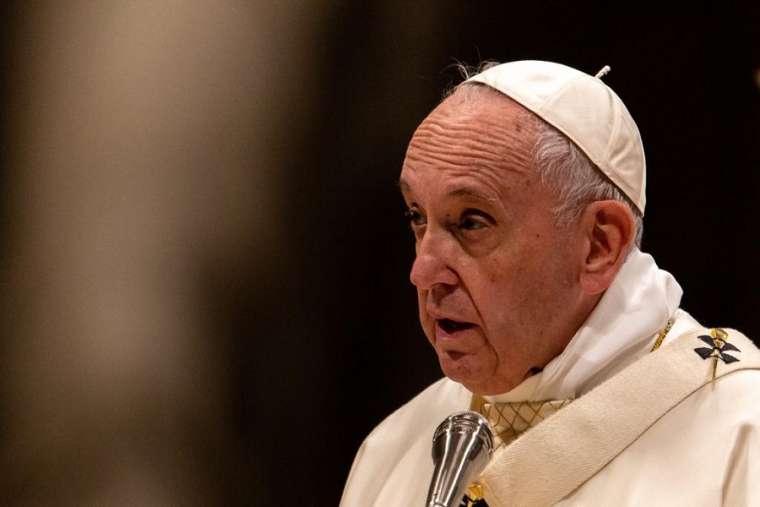Pope Francis: the doctrine is renewed with roots firmly planted in the magisterium

Christian doctrine is not changed to keep pace with times that pass, nor is it rigidly closed in on itself, Pope Francis said to members and counselors of the doctrinal congregation.
"It is a dynamic reality which, remaining faithful to its foundation, is renewed from generation to generation and is summed up in a face, a body and a name - the risen Jesus Christ," he said.
"Christian doctrine is not a rigid and closed system, but neither is it an ideology that changes with the changing of the seasons," he said on January 30, during an audience with cardinals, bishops, priests and laity who were taking part in the plenary assembly of the Congregation for the Doctrine of the Faith.
The pope told them that it was thanks to the risen Christ that the Christian faith opens the doors to every person and his needs.
This is why transmitting the faith "requires taking into account the person who receives it" and that this person is known and loved, he said.
In fact, the congregation was using its plenary to discuss a document on the care of people experiencing critical stages of a terminal illness.
The purpose of the document, said Cardinal Luis Ladaria, prefect of the congregation, is to reaffirm "the foundations" of the Church's teaching and offer "precise and concrete pastoral guidelines" regarding the care and assistance of those who they are in a very “delicate and crucial” phase in life.
Francis said their reflections are essential, particularly at a time when the modern era "is progressively eroding the understanding of what makes human life precious" by judging the value or dignity of life by its usefulness or to the efficiency of that person.
The story of the Good Samaritan teaches that what is needed is conversion to compassion, he said.
“Because many times people who look don't see. Because? Because they lack compassion, ”he said, noting how often the Bible repeatedly describes Jesus' heart as being“ moved ”with pity or compassion for those he meets.
“Without compassion, the people who see are not involved in what they observe and keep moving forward. Instead, people who have compassionate hearts are touched and involved, they stop and take care of each other, he said.
The pope praised the work done by the hospices and asked them to continue to be places where professionals practice "dignity therapy" with commitment, love and respect for life.
He also stressed how important human relationships and interactions are in taking care of the terminally ill, and how this approach must operate with the duty of "never abandoning anyone in the face of an incurable disease".
The pope also thanked the congregation for its study work on revising the norms relating to the "delicta graviora", that is, "more serious crimes" against church law, which include the abuse of minors.
The congregation's work, he said, is part of an effort "in the right direction" to update the standards so that procedures can be more effective in responding to "new situations and problems."
He encouraged them to continue "firmly" and to proceed with "rigor and transparency" in safeguarding the sanctity of the sacraments and of those whose human dignity has been violated.
In his initial remarks, Ladaria told the pope that the congregation has examined "a draft revision" of the motu proprio of St. John Paul II, "Sacramentorum sanctitatis tutelage," which has given the doctrinal congregation the responsibility of dealing with and judging the accusations. sexual abuse of minors by the clergy and other serious crimes within the framework of canon law.
The cardinal said he also discussed during the plenary the work done by the disciplinary section, which handles abuse cases and has seen a notable increase in cases over the past year.
Mgr.John Kennedy, the head of the section, told the Associated Press on December 20 that the office recorded a record 1.000 cases reported for 2019.
The sheer number of cases "overwhelmed" the staff, he said.
Telling the pope some of the documents that the congregation has published in the last two years, Ladaria also claimed to have issued a "private", that is, unpublished clarification on "some canonical issues concerning transsexuality".